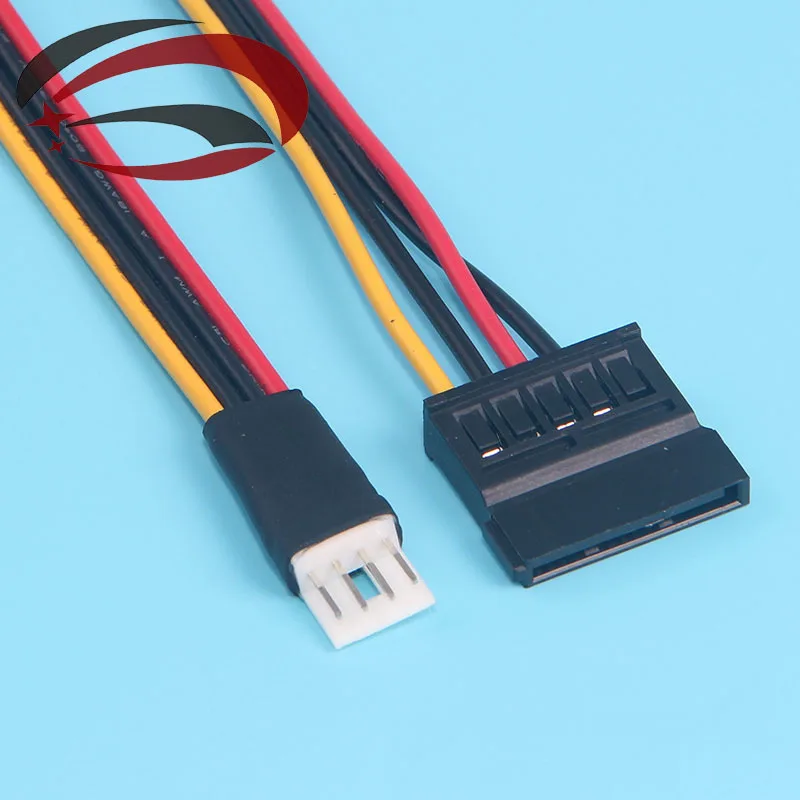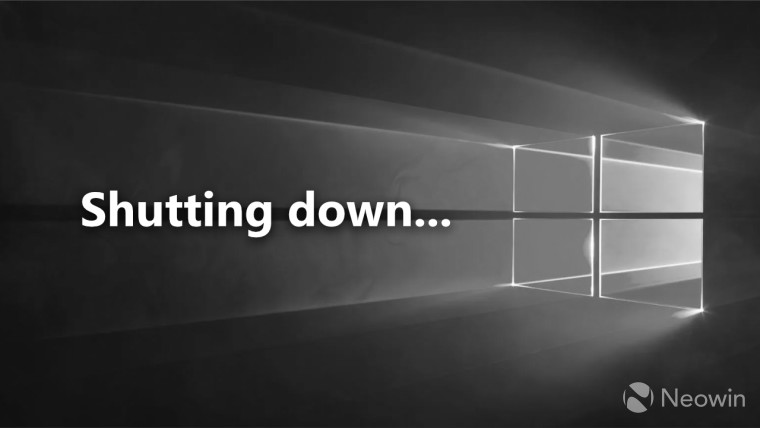Original article: https://www.eset.com/de/about/presse/pressemitteilungen/pressemitteilungen/security-fiasko-32-millionen-computer-in-deutschland-laufen-noch-mit-windows-10/
ESET recommends switching to Windows 11 as quickly as possible. Alternatively, a Linux distribution can also be a good option, especially for older hardware.
66.12% of Windows PCs are still on Windows 10 in Germany, 62.73% worldwide.
https://gs.statcounter.com/os-version-market-share/windows/desktop/worldwide
Interesting they would recommend that, I mean it’s pretty cool of them but they sell antivirus software that AFAIK is only available for Windows.
Almost like they care more about giving good advice than making money… Impossible.
There is still ESET Endpoint for Linux, but that’s for business users only.
Regular ESET NOD32 for home Linux desktop users was discontinued in August 2022.Pretty much all enterprise security software companies have endpoint clients for Linux, desktop and server.
However, most of those will be exclusive to their business channel products.
While the IT infrastructure of some businesses over here is abysmal, most companies should at least have hardware recent enough to support Windows 11; especially if they’re otherwise entangled in the Microsoft
monopolyecosystem.
Unrelated but you have the greatest username. Firewire was and is great and USB is not
Part of my Christmas gift to my father this year was getting him a SSD, and install Linux on his PC, that doesn’t support Windows 11. But his Dell was very not friendly for upgrading. It has a proprietary PSU with only the connectors needed to run the one HDD and Optical drive (also a non sata connector).
I had a plan in case there were issues, and had enough spare parts to build him a nicer used PC. It’s also an upgrade for him as his Dell was a 6th gen i5, now he’s got a 7th gen i7 :) and more ram.
But I built it, and installed Fedora 41 KDE on it. He started setting it up here over the holidays then took it home and set it up there. He’s not run into any “problems” he hasn’t found solutions for. Mom is still using the Dell but Dad hopes he can eventually get her moved to the Linux box.
I used to run ESET and really liked them ‘back in the day’ and glad to see them looking out for people.
also a non sata connector
Like the older Molex, or something really custom made to fuck users over?
Like a tiny proprietary connector, not Molex, not SATA. So the power supply had a single line running to the spinner HDD (standard SATA), and then piggy backed off that to the optical drive was this little connector. Kind of looked like a 4pin fan connector size. I didn’t bother investigating after my plan to just disconnect the optical drive was thwarted <sigh>
Ah that rings a bell, some of my (older) PSU cables have one of those at the end after a daisy chain of SATA or Molex
Something like the rightmost in these pictures?


I think they are called Floppy connectors
That might be it, but would an optical drive run off that? Guess it’s all the same power wires.
I never had an optical drive that had this connector, but it seems plausible that the relatively smaller pins could still carry enough power for it.
The most power hungy bit would probably be the spinning motor, and the mass being spun is much lower in an optical drive than for a magnetic drive platter.
Ahh okay, that description kinda sounds like floppy drive power, but it probably is a proprietary thing.

I’ve asked my dad to snap a picture if he doesn’t mind :) but it’s a bit of a pain to get to
I didn’t have anything at the house to split off the sata power and I was ok getting rid of my spare stuff so it worked out better anyway
Could also be slimline sata.

no, this thing had a separate power/data. It was a normal sized optical drive (old thick size). I’m going to see if I can get my dad to snap a picture. They’re 600 miles away so I can’t just do it real quick.
For anyone too lazy to check, ESET is a Slovakian cybersecurity company.
Microsoft’s approach to their OS seems to be, “constantly add more stuff that relatively few people want or need, and require everyone to buy new hardware to support it.” The resulting upgrade cycle is needlessly wasteful of people’s money and harmful to the environment.
Meanwhile, the Linux ecosystem is more like, “make new stuff available, but optional, and constantly optimize things to be more efficient.”
I was still gaming and developing software on a ten-year-old computer (with a somewhat newer GPU) until very recently. I’ll let you guess which OS I was using.
“constantly add more stuff that relatively few people want or need, and require everyone to buy new hardware to support it.”
This shouldn’t surprise anyone. Windows, Apple and Android, and the companies that develop software that run on Windows, Apple, and Android, have all fallen into the habit of writing unoptimized, bloated code. Replacing a phone or a tablet because it “got old” is the norm now. We all know the only thing in phones and tablets that consistently get old are the batteries, the hardware is almost always fine, but the OSs and the software constantly get upgraded to the point where we don’t even keep track of the version numbers anymore (when was the last time you looked at the version number of Firefox?) A 6-year-old tablet is effectively junk because everything that used to run on it has been “upgraded” so many times. It’s like trying to run Crysis on a 486.
This shouldn’t surprise anyone. Windows, Apple and Android, and the companies that develop software that run on Windows, Apple, and Android, have all fallen into the habit of writing unoptimized, bloated code
Same goes for anyone who develops software that runs on Linux or more importantly, the Web. Unless we’re talking about command line utilities, which truly are bloatless. But they’re that way on MacOS too.
The issue is that 99% of the time you want your user interface to be graphical, and you want it to run on multiple platforms, unless you’re a Windows-only shop (realistically the only operating system you can afford to have as the ONLY target). But every OS has different libraries and frameworks for native GUI, so your options are Web technologies and either run it in the browser or package it in Electron, or a cross-platform native GUI framework. Those inevitably have worse performance than truly platform-native code, but not as bad as Electron. Inevitably, everything is running on Electron because it’s just easier to take your existing web app and repurpose it for desktop via Electron than develop two separate apps. And the web app itself, without Electron, is already shit. Why is it shit? Because Javascript is shit, the DOM is shit, everything is shit. We’ve been adding more and more and more to tech from the 1990s. It keeps growing in complexity and we’re just doomed.
Maybe WASM will fix parts of this, but at present time you can’t write a full web application in WASM without any Javascript involved. And you still have the DOM, and probably CSS, etc… All of which just suck ass.
Now, you CAN write an efficient UI in pure Javascript, maybe using jQuery, but not a big framework like React or Vue… But then you’ll find out duplicating so much work, it’ll take 3-5x as long to ship the product.
Out of curiosity, what are your views on flutter?
Haven’t had a chance to use it much tbh, I mostly work in backend development. I’d deeply prefer it to Electron for my personal ideological reasons (which is that running “native” apps in a browser is stupid), but I hear it’s not recommended for web, so you’d still have to develop two or three versions (depending on how feasible it is to keep desktop and mobile on the same codebase - I’m not sure on that). Still, it’s more reasonable than doing the desktop versions in Qt in this day and age, because C++ is just a recipe for footgunning yourself. This is of course negated by having significant C++ experience, in which case Qt is the way to go.
I’ll let you guess which OS I was using.
Windows 2000 Professional SP4, obviously.
Heck i only upgraded my 10yo 'puter 'cos of mobo issues… that turned out to be a PEBKAC anyway (mostly). I don’t game though.
btw?
Linux is really getting a push nowadays, subscription and cloud services have been unexpected allies.
Year of the Linux Desktop!
With it being a US Military Contractor with frequent huge reports on massive botnets and current vulnerabilities, I wonder how long it will take before the USA Government kicks Windows OS to the curb like everyone else?
TBH Windows might outlive the rest of the US government with how things are going.
Maybe that’s the real reason Microsoft keeps pushing out of the OS industry and more into servers, cloud, and AI. They can still do the US contractor work without the OS business.
Im Original Artikel ist Linux nur ganz kurz am ende erwähnt, der Titel ist mehr Clickbate als etwas anderes.
Si.
You no habla inglés? x)
Qui
deleted by creator
Wrt win PCs %, how does that compare to the win 7 to win 10 transition?
The situation is more dangerous than when support for Windows 7 ended in early 2020. Even before the official date, at the end of 2019, only around 20 percent of users were still using Windows 7. Over 70 percent were already using the new Windows 10.
Hardly a surprise, since Windows 10 didn’t need new hardware to run. You could install it on anything.
And Windows 8/10 didn’t take features away for no reason. (Or at least, they didn’t insist on them for too long, with the windows 8 desktop fiasco)
You will take my top taskbar from my cold dead hands Microsoft, who the fuck signed off on this? They actively shutdown any forum threads on it too.
Off to Linux we go.
Other than at work, where I have no choice :(
Lol I tried looking for info online when it was right there ib the article 🤦♂️
Honestly transition from Win 10 to Win 11 absolutely mess.
I remembered back in old days when people transition from Win Vista to Win 7 without hassle & demand weird system requirements, in the end everyone loves Win 7 even from Linux community itself.
If many tech corpo demanding windows 11 as base support & the choices are limited between upgrade system or install linux, i personally choose linux because in linux every hardware is supported although it’s hard to understand & operate at first but…as time goes by everyone will used it like nothing happened












